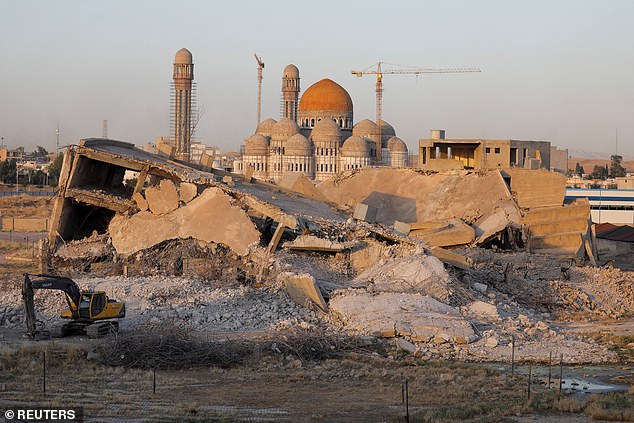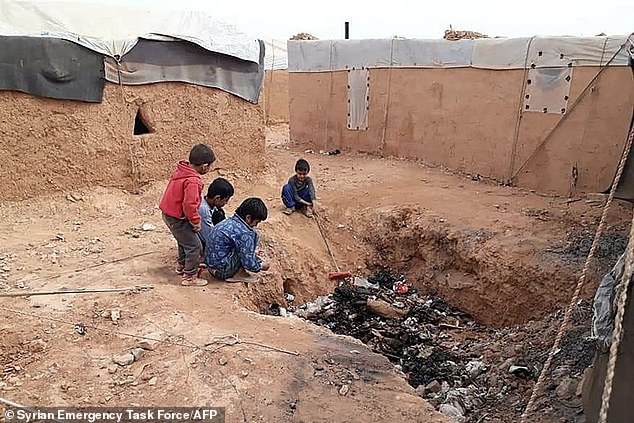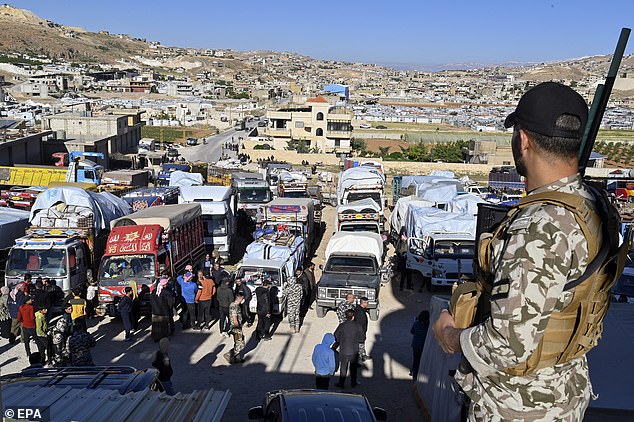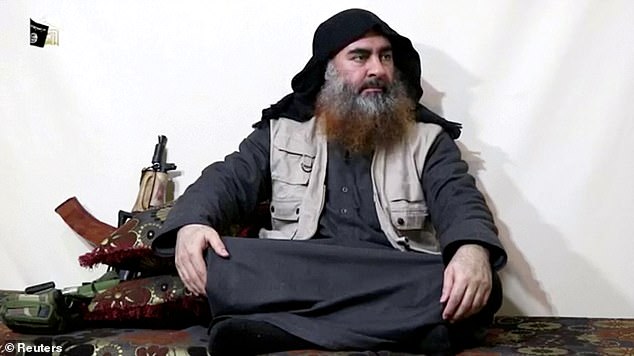The first wife of ISIS leader Abu Bakr al-Baghdadi has shared details of her life in a rare interview from prison, expressing shock at the “inhumane” atrocities committed by the jihadist group.
Widow Umm Hudaifa was married to the ISIS leader while he oversaw ISIS’s cruel rule over much of Syria and Iraq, which committed genocide against the Yazidi people and took thousands of women as slaves, while killing hostages and civilians.
In an interview with BBC, Hudaifa, who is being investigated for terrorism-related crimes, said she was living in Raqqa, Syria, when her husband declared himself leader.
She explained that she often spent time separated from her husband, who was in hiding as a wanted leader of the jihadist extremist group. Just a few days before, her children were gathered to teach them how to swim in the Euphrates.
One day, after turning on the television, she said she got a “big surprise” when she saw her husband heading to the Great Mosque of al-Nuri in the Iraqi city of Mosul, where he declared himself head of the Islamic caliphate.
Caliphate leader: Abu Bakr al-Baghdadi detonated his own suicide vest during the attack targeting his hideout in the Syrian province of Idlib, killing three of his children in the explosion. He is shown in a still image from a video released in April 2019, and has not been seen since he spoke at the Great Mosque of Mosul in 2014.
She was surprised to discover that her children were in Mosul with her husband. “She told me they were going on a trip to teach children to swim,” she told the BBC.
Hudaifa also described ISIS’s atrocities as a “huge shock” and “inhumane,” adding that they “crossed a line of humanity.”
She added that she “felt ashamed” of the violence against the Yazidis.
The widow is under investigation for her alleged role in ISIS and crimes committed by the terrorist organization and is currently detained in a Baghdad prison.
She has denied involvement in the sexual slavery of women and girls and claims that she herself was a victim and tried to escape from her husband, whom she married in 1999.

A general view of the Mosul Grand Mosque as reconstruction work continues in Mosul, Iraq, June 7, 2024, 10 years after Islamic State militants took control of the city and ruled for three years before being overthrown by Iraqi forces and their allies. R

The image taken last month shows displaced Syrian children playing near a garbage dump in the Rukban camp, located in no man’s land in southern Syria, bordering Iraq and Jordan. The Rukban camp was established in 2014, at the height of the war in Syria, when desperate people were fleeing jihadists from the Islamic State (IS) group and government bombing in the hope of crossing into Jordan.

Syrian refugees gather as they prepare to leave the Arsal area, before traveling to their homes in Syria, in Arsal, Bekaa Valley, Lebanon, on May 14, 2024. Lebanese state media said on May 14 In May, some 330 Syrians in Lebanon began their “voluntary” repatriation from different areas of Lebanon.
Her Iraqi-born husband, ISIS leader Al-Baghdadi, became known on the world stage after ISIS ruled northern Iraq and northeastern Syria more than a decade ago, before detonating a suicide vest when US Army Special Operations forces approached their hideout in northwest Syria on October 27, 2019.
In 2014, he made a rare appearance in which he declared himself caliph, ruler of the Muslim community.
Hudaifa claimed that when she first married her husband, he was “conservative but open-minded” and claimed that he was not an extremist.
However, he said that after al-Baghdadi was detained at Camp Bucca in 2004 following the 2004 US-led invasion of Iraq, he changed, claiming that he suffered from psychological problems.
Al-Baghdadi was reportedly arrested after founding a Sunni militant group to fight American and Western-allied occupation forces.
He spent his year of detention with many other men who would later become important figures in ISIS and other jihadist groups.
Although she did not tell him directly, Hudaifa believes her husband was subjected to “sexual torture.”
Hudaifa added that upon her return she began to suspect that her husband belonged to a militant group as they often moved house and had false identities.
She then asked him for a divorce, but she stayed with him because she could not accept his condition of giving up her children.
“We moved to rural Idlib in Syria in January 2012, and there it became absolutely clear to me that he was the emir (leader),” he said.
The barbarity of the militant groups that formed ISIS was already prominent, but in 2014 the bloodshed became more widespread.
This included ISIS’s genocide against Iraq’s Yazidi minority, as well as the murder, torture, kidnapping and enslavement of civilians.
“Shedding blood unjustly is horrendous and in that sense they crossed the line of humanity,” Hudaifa told the BBC.
She also stated that she questioned her husband for his involvement in the massacre of thousands of people, telling him that “under Islamic law there are other things that could have been done, such as guiding them to repentance.”
But in 2014, nine Yazidi girls, aged between nine and 30, were taken to the home of Hudaifa, who she said only stayed there for a few days.
A woman named Soad, who was enslaved, raped and sold seven times, and her father Hamid, have filed a civil lawsuit against Hudaifa for her role in the kidnapping and enslavement of Yazidi girls.
‘She was responsible for everything. She made her selections: this one to serve her, that one to serve her husband… and my sister was one of those girls.’
“She is the wife of the criminal Abu Bakr al-Baghdadi, and she is a criminal like him,” Soad told the BBC.


